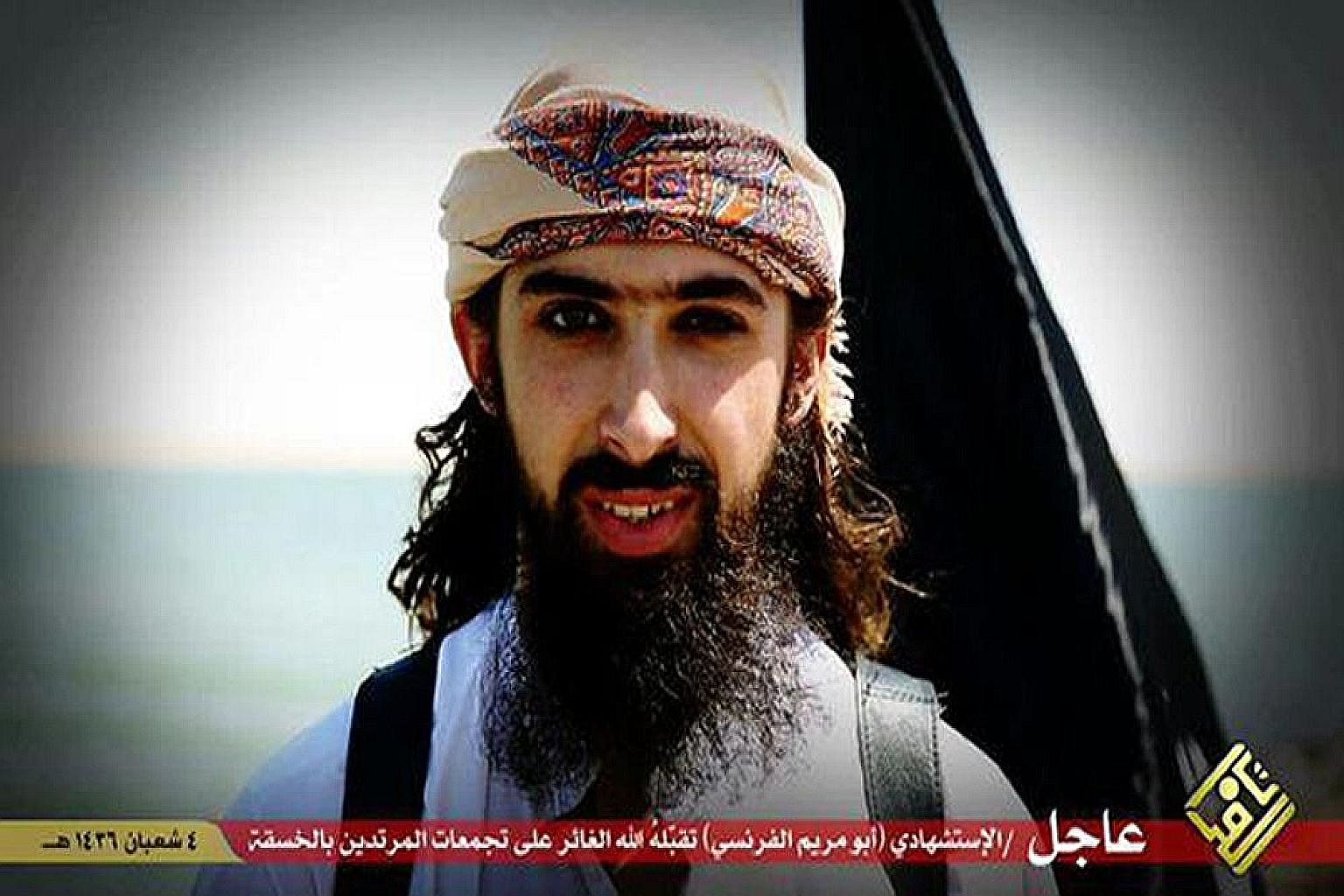ON MONDAY, it will be a year since the Islamic State in Iraq and Syria (ISIS) formally declared the establishment of a worldwide caliphate, with its leader Abu Bakr al-Baghdadi as the new caliph. What has the year of the caliphate taught us? What are the real threats? How has ISIS changed? How should we?
Contrary to widely held belief, returned foreign fighters do not - yet - pose the main threat to their countries. Across the key geographic theatres, the vast majority of plots, whether realised or not, have been conceived by sympathisers inspired by ISIS ideology (in some cases, empowered by ISIS calls to carry out attacks in their home countries) but acting independently of the extremists' control.
The plain fact, however, is that we do not know how ISIS targeting will evolve. ISIS will likely continue to concentrate on expanding its caliphate and consolidating the areas it holds, while from time to time prompting its sympathisers to carry out attacks (as it does now).

But we cannot discount the over-the-horizon possibility of ISIS turning its attention outwards and attempting to organise Sept 11-style attacks. A newer leadership with international "jihad" on its mind, or the pressure caused by military reverses, could be the trigger for a change in the militant group's orientation.
Messaging
WHAT has been lacking thus far is the concerted and coordinated thought and effort needed to counteract a messaging that has out-evolved everything thrown at it.
Consider, for example, the difficulties faced by the Think Again Turn Away campaign, launched in late 2013 by the US State Department's Centre for Strategic Counterterrorism Communications (CSCC) to win over hearts and minds of extremists on social media. The campaign degenerated into a shrill debate between the CSCC and ISIS fanboys. ISIS was none the worse for it: The online jousting merely provided its supporters with the opportunity and a platform to showcase, and sharpen, its own message.
ISIS' social media messaging projects a multiplicity of superior aspirations and ideals. Its propaganda, often accompanied by highly stylised visuals, assures people that "sometimes people with the worst pasts create the best futures". These messages are also accompanied by striking imagery of Kalashnikov-wielding hooded individuals contemplating the light-filled path ahead. That this appeals to those with little to lose, to the disenfranchised, is obvious. The caliphate is a place where people can be redeemed.
One notorious ISIS cheerleader and fanboy from Australia, Musa Cerantonio, describes his reaction to Baghdadi being declared caliph in this way: "I was in a hotel... and I saw the declaration on television… And I was just amazed, and I'm like, why am I stuck here in this bloody room?"
What complements the call of ISIS - and this is critical - is the polyphonic messaging that appeals not just to would-be extremists but also to many others. ISIS has made it clear that everyone can contribute to building the caliphate: Anyone who comes will be looked after, as will their families who come with them.
Social scientists and anthropologists (and it is striking that some of the best insights into the appeal of ISIS have come not from terrorism experts but from those working in broader domains) have also observed, correctly, that while many ISIS fighters and sympathisers might in some senses be in transitional stages of their lives, others are "normal" psychologically - many are neither radical nor wayward, nor even religious for that matter. Many are do-gooders impelled by a humanitarian impulse.
We need to wrap our heads around the fact that the caliphate has enormous allure for people in all these groups, and that the pathways of many of those who become ISIS sympathisers, online fanboys or fighters simply do not follow the standard stepladder schematic of radicalisation drawn up by (mostly) Western security agencies, think-tanks and academics.
The uncomfortable truth may well be that ISIS understands "radicalisation" better than we do.

What should be done
THE caliphate has a master narrative. Opposing ISIS requires one too - one going beyond a simple negativing of ISIS propaganda, encompassing a set of aspirational ideals capable of reaching into the psyche of people looking, more often than not, for confirmation of their own beliefs.
Assembling unofficial brain trusts would be a start. Those recruited should be drawn from all walks of life - advertising, psychology, experts on youth gangs and delinquents - all complementing the radicalisation experts. Digital natives, too, are needed: just as the ISIS social media effort is put together not by staid men sitting in committee but rather by the ebullient efforts of individuals completely at ease with social media (indeed, having never known a past without it).
Singapore has a head start: There are, behind the scenes, communities of practice beginning to get to grips with these issues. More could always be done by way of ensuring that academia, think-tanks and policymakers communicate with one another. But all in all, these are reasonable beginnings. Drawing on real-world initiatives will also be key. Outreach and deradicalisation programmes exist from Minneapolis to Aarhus to Singapore. These tackle the entire gamut from at-risk youths to self-radicalised individuals to returnees, using methods ranging from religious and psychological counselling to family outreach and societal (re)integration.
While some local initiatives report success in staying the hand of people who might have been tempted to join ISIS (or in deprogramming returnees), many of these are small, context-specific and not easily replicable. What has been shown to work well in one locale may have considerably less efficacy when transplanted to another region where culture and communities are markedly different. More needs to be done by way of sharing of best practices: What works, and what doesn't? When and where can local particularities have universal applicability?
In the wider landscape, what states should not do is just as important. Inevitably, as ISIS evolves, states may have to tinker with their security regimes; some may have to be overhauled altogether. But leaving one's citizens in limbo through revoking citizenship, the route some nations are considering, should be weighed carefully and not used lightly.
ISIS fighters and sympathisers who have committed crimes at home or abroad should not, of course, expect a free pass. They will have to face penalties or (at the very least) square their accounts with the security services. But it should not be forgotten that many who do come back are disillusioned. They could bear valuable testament against ISIS and their voices should be woven into the master narrative. States have to be able to show there is a way back.
This is why the Ministry of Home Affairs press statement in May concerning the release and rehabilitation of Jemaah Islamiah members and a self-radicalised individual (issued at the same time as the statement on the self-radicalised youth hoping to join ISIS, which gained considerably more attention) was so important.

ISIS and local governance
ISIS learns. It has become more adept at telling would-be fighters making the journey how to avoid routes that have become compromised. In the short duration of the caliphate, ISIS fighters and their sympathisers have become more adept, and careful, in the use of social media, with an increasing use of encryption evidenced. They are migrating to secure forms of communication (think Wickr), or the less well-known platforms (such as Kik). We are now in fact nearing the end of the golden period of relatively open ISIS social media use which, while it lasted, was a boon for researchers, academics and intelligence agencies.
In the real world, too, ISIS is unlikely to disintegrate even as coalition successes against it gather pace. US President Barack Obama recently acknowledged that defeating ISIS would be a "multi-year campaign". What Mr Obama left unsaid is that the drone attacks that he takes a particular, and personal, controlling hand in have not succeeded in eradicating the ISIS lines of command and control.
At the tactical level, territory may be retaken, but dealing with an excess of 30,000 ISIS fighters (two-thirds of them "foreign") will not be accomplished easily. Extremists have always sought out badlands - poorly governed, straddling borders - where there is instability or the possibility of fomenting and feeding off conflict. Returnees in various parts of the world will therefore pose a security issue for years, if not decades, just as the previous generation of Afghan veterans did.
Analysts will also need to start to better understand the other groups on the terror scene - groups like Jabhat al-Nusra, Jaysh al-Muhajirun and Ahrar ash-Sham - since they too are going to be part of a patchwork where a new great game is played out. Will the region break up into a sea of petty principalities, divided and disputed by (besides the interested nations themselves) the Kurds and emerging warlords across the Sunni and Shi'ite divide, many of whom are, in turn, clearly proxies for larger interests?
For the time being, ISIS is the biggest game in town. Only ISIS can offer a semblance of local government. Its mouthpieces have tweeted that the nascent state offers subsidised gas, free water, dental care and many other services - almost a municipal promised land. The reality is, of course, different: shortages of the most basic necessities; grim executions for the merest transgressions. But this does not mean that the ISIS state building enterprise will fail. Governance and provision of services will be a key issue, as will its ability to attract individuals who can run states - civil servants, doctors, engineers and teachers. The caliphate has some of these people, but not enough. The ISIS leadership knows this.
We use the language of eradication all too readily. But as Mr Richard Barrett, the respected former head of counter-terrorism at MI6, recently observed, ISIS "offers those living under its rule better governance in some respects than they received from the state before it took over. Corruption is far less prevalent, and justice, albeit brutal, is swift and more evenly applied. The policy challenge is therefore not to seek the destruction of the caliphate so much as to promote its transformation into something that the Syrian and Iraqi people, along with the rest of us, could live with".
Policymakers, security agencies and the think- tank community should harvest the best insights of scenario planning, horizon scanning and whatever tools they have in an effort to better understand the longer-term implications of this prognosis. This is not defeatism. The failure to consider the possibility of learning to live with ISIS, no matter how repugnant, would be a failure of foresight. It is the responsibility of all to ponder what might seem improbable.
The writer is head of the Centre of Excellence for National Security at the S. Rajaratnam School of International Studies, Nanyang Technological University.
